Discover financial empowerment resources
Discover financial empowerment resources
There are many different actions that can be taken to improve financial wellbeing. The Financial Wellbeing Framework offers 17 entry points to action to inform government, organizations, policymakers, decision-makers, practitioners, and researchers in their efforts to address financial...

If any of these statements sound like something you would say about money, this toolkit is for you: • I don’t have enough money to live on each month. • I find it frustrating to have to share my situation over and over again. • I wish I could find help easily but don’t know where to...

Canada faces a decline in financial well-being. This report identifies systemic barriers to financial well-being and proposes a series of targeted institutional reforms, including the following: • Accelerate open banking • Streamline rules for inclusive innovators • Create a community...
Prosper Canada's comprehensive report, Closing the Divide: Solutions for Canada's Financial Help Gap, sets out clear steps governments, financial services, and community organizations can take to ensure every Canadian – no matter who they are or where they live – can access the financial help...
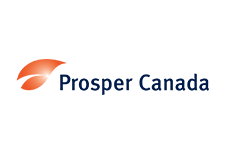
This OECD Economic Survey provides a comprehensive analysis of Canada's 2025 economic developments, with chapters covering key economic challenges and policy recommendations addressing these...
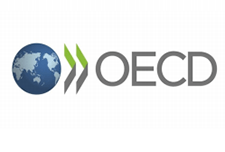
Dive in to explore how the trends and insights from the country’s most comprehensive research on non-profit workers’ health and wellbeing can guide your leaders, team and board. The 2025 Changemaker Wellbeing Index is a free resource filled with reliable data on the factors affecting the...

This Government of Canada dashboard lets you explore trusted data from 2019 onward. Examine trends on how Canadians manage their financial commitments, how they maintain emergency savings, and where...

This report provides top-line data and insights on the financial resilience of Canadians living with low incomes based on the Institute’s Financial Well-Being Studies, Financial Resilience Index Model and Financial Well-Being Index Model linked to an Overall Well-Being Score. Based on data from...
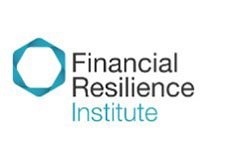
Canadians with low incomes lack access to the financial help they need to rebuild their financial health and resilience. Watch the webinar from September 17, 2025 as we present findings from our recent report: Closing the Divide: Solutions for Canada’s Financial Help Gap. Prosper Canada’s...
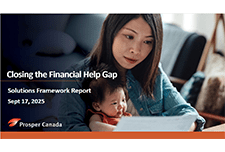
A culturally grounded resource to support Indigenous financial wellness. Braiding Mind, Body, and Spirit is a financial wellness bundle created by and for Indigenous individuals and communities. Developed with Indigenous teachings, community voices, and practical tools to support individuals,...
With February 2025 the thirteenth Index Release, the Institute’s Financial Resilience Index Model complements the national Financial Well-Being Studies instrument and the Financial Well-Being Index Model instruments. Access this resource to read the...
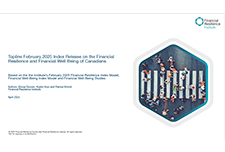
Wellesley Institute’s Thriving in the City1 framework is a valuable tool for understanding what resources an individual needs to live a healthy life and assessing how the current policy environment meets these needs. While the previous report focused on working-age adults (25-40 years old),2 this...
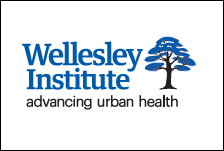
York Region Plan to Support Seniors hosted an information series with John in late 2024. In these recorded sessions, John looks at what people need to know about retiring on a low-income, how to make the most of government benefits and other considerations. Session 1: What “low-income” means...
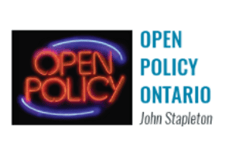
From 2019 to 2022, among Indigenous people aged 18 years and older, 54.3% of Inuit reported having a regular healthcare provider, along with 81.4% of First Nations people living off reserve and 84.5% of Métis. This is compared with 85.7% of the non-Indigenous adult population. Released...

Tables for 14 indicators in Canada's Quality of Life Framework have been updated to include Canadian Social Survey data collected from October to December 2024 (fourth quarter of 2024). These indicators include life satisfaction, sense of meaning and purpose, future outlook, loneliness,...

No matter where you are in your financial journey—whether you’re beginning your career, saving for your children’s education, planning for retirement, or setting up a legacy for your loved ones—working with a qualified Financial Planner to create a financial plan can significantly help in...

Whether you are buying insurance for your home or things you own, FSRA’s role as a regulator is to ensure that those selling insurance are licensed and following the legislation for property and casualty Insurance. Learn more by visiting the Financial Services Regulatory Authority of Ontario...

When you buy life or health insurance, FSRA protects you by ensuring insurance companies and life and health agents are properly licensed to operate in Ontario and that they comply with the Ontario Insurance Act. Learn more by visiting the Financial Services Regulatory Authority of Ontario...

The Monthly Financial Well-being Monitor is a survey designed to collect information about Canadians' day-to-day financial management and financial well-being. It collects data from approximately 1,000 respondents per month and is a continuation of the COVID-19 Financial Well-being Survey, which...
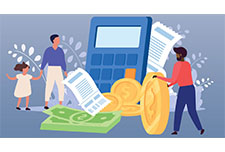
This collection of financial empowerment tools and resources is intended to support both Indigenous and non-Indigenous organizations working to help Indigenous Peoples navigate the receipt of a lump sum payment. It was created as part of the Expanding investor education and protection for...
Interpreting the data: Key takeaways from Welfare in Canada, 2023. For nearly 40 years, the annual Welfare in Canada series and its predecessors have documented the depth of poverty that persists for people receiving social assistance. The 2023 edition builds on this work to provide a...
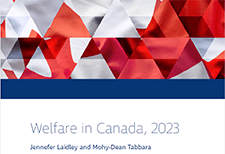
On August 5, 2024, FCAC relaunched its national, multi-media advertising campaign titled “Housing Costs on Your Mind?”. The campaign promotes FCAC’s tools and resources related to renting, buying a home and owning a home with a mortgage. The campaign runs until...

Burnout can happen for many reasons, including being overworked. Dealing with stress can cause problems for your physical and mental health, and your finances. If you’re over-spending or making spontaneous decisions about money to cope with stress, you might be putting your long-term financial...

Savings are one of the strongest predictors of household financial resilience and well-being, yet Canadian households struggle to save due to an array of economic, behavioural and institutional factors. The Financial Consumer Agency of Canada (FCAC) created the National Financial Literacy...

The Welfare in Canada reports look at the total incomes available to those relying on social assistance (often called “welfare”), taking into account tax credits and other benefits along with social assistance itself. The reports look at four different household types for each province and...

